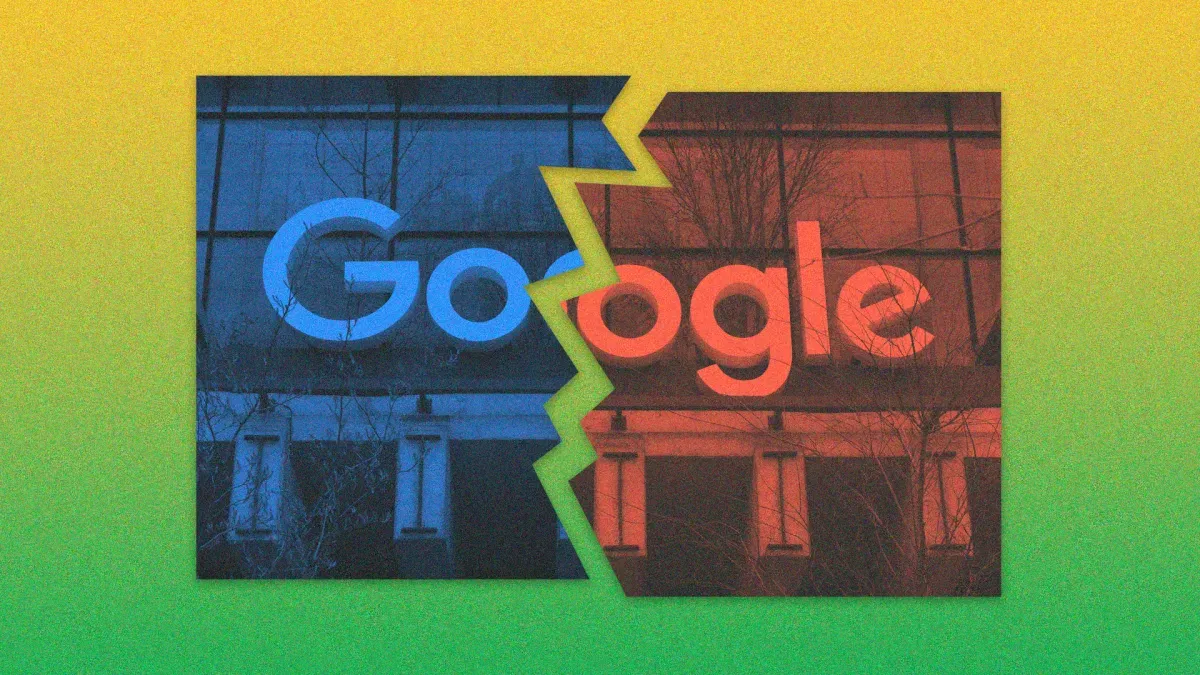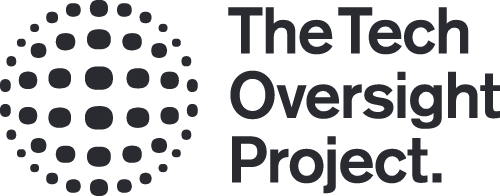Breaking Up Google: Do-Able, OAMA Reintroduction

Welcome back to The Dispatch from The Tech Oversight Project, your weekly updates on all things tech accountability. Follow us on Twitter at @Tech_Oversight and @techoversight.bsky.social on Bluesky.

UN)COMPLEXITY PROBLEMS: Breaking Up Google Not Too Hard, Actually: As part of the Justice Department’s historic antitrust case against Google for illegally monopolizing the search market, the DOJ is asking the court to force Google to spin off its Chrome browser. Google and Google’s paid Big Tech lobbyists says that would be too difficult—that Chrome is too intertwined with its infrastructure to be separated. The reality? Maybe not so much.
A new report from the Knight-Georgetown Institute analyzes the code behind Chrome, Brave, Firefox, and other browsers, and the results make it clear that Chrome doesn’t need Google to function. Plenty of other browsers already run on the same open-source foundation without relying on Google’s services. With new infrastructure, a new team, and court-ordered help from Google to smooth the transition, Chrome could too.
The researchers, drawing on source code analysis from Chrome, Brave, Firefox, and others, make five things clear:
- Chrome’s divestiture is technically feasible.
- A non-Google Chrome can run without Google’s proprietary tech.
- The Chromium codebase can be maintained outside Google.
- A smooth transition is possible if the court compels Google’s cooperation.
- Success depends on guardrails that stop Google from undermining the remedy.
Structurally separating Chrome from Google and its parent company Alphabet isn’t just feasible or the right thing to do (denying the monopolist its illegal gains), it might just be the smartest option available to the court.

APPLE TRIES TO DUCK DOJ ANTITRUST CASE – FAILS: A federal judge just shot down Apple’s attempt to toss out the DOJ’s antitrust case against the smartphone monopolist. The lawsuit—filed last March—claims Apple has built an illegal smartphone monopoly by blocking competitors from accessing key iPhone hardware and software.
⏩ Getting up to speed: The crux behind the Justice Department’s case centers around Apple’s interlocking monopolies on smartphones. Specifically, they argue:
- Apple blocks cross-platform messaging to keep iPhone users locked in
- Restricts third-party wallets and tap-to-pay apps in favor of Apple Pay
- Limits smartwatch functionality to its own Apple Watch
- Prevents rivals from using web technologies that compete with native apps
- Uses private APIs and system privileges to disadvantage competitors
🔁 The spin: This is a major blow to Apple. Full Stop. Late last year, The Tech Oversight Project issued a report about Apple’s efforts to slow down the process, saying, "Justice has been anything but swift. Apple has actively gummed up the process, and the courts have been too slow to react. With every passing day, Apple continues to rake in billions of dollars—obtained because it breaks the law to get ahead. This isn’t a victimless crime."
While we know Apple has certainly continued to enjoy its likely monopoly, the company will now open itself up to discovery as the trial moves forward. If past is prologue, we’ll likely learn more about the side deals Apple has cut to crush competitors and block users from using safe features.

New York Times: Opinion: Tech Companies Have Created a Loneliness Doom Loop
Author Samantha Rose Hill pens an opinion piece detailing how Big Tech contributes to the loneliness epidemic, prays on people who are vulnerable, and profits by keeping people trapped in content loops.
TechCrunch: Meta has found another way to keep you engaged – chatbots that message you first
TechCrunch details how Meta is working with Alignerr to create custom chatbots that proactively reach out to people to cultivate “relationships.” The outlet found that no company-imposed age limitations were in place – seeking to draw minors even further into Zuckerberg’s predatory AI chatbots.

WARREN ASKS BIG TECH HOW BIG ARE THE TAX BREAKS: While the AI moratorium was defeated in Trump’s reconciliation package, Senator Elizabeth Warren is asking Amazon, Apple, Meta, Google, and Tesla for the receipts.
In letters to Big Tech CEOs, she asks exactly how much money their companies stand to gain, and how much they’ll make personally now that the bill has passed.
“You have spent millions cozying up to President Trump and Congressional Republicans, and they now appear ready to return the favor by handing you billions of dollars in tax breaks,” she writes.
The bill would let companies retroactively deduct past investments, essentially rewriting their tax bills to erase what they owe. Other provisions would slash taxes on equipment purchases and loosen rules on interest deductions, mostly benefiting corporations already swimming in cash – like trillion-dollar Big Tech monopolies.

📲 UNLOCKING GOOGLE AND APPLE’S APP STORE MONOPOLIES: Amid all the furor surrounding the recently-defeated AI moratorium, you may have missed another critically important bill that would improve the internet: The Open App Markets Act. The bill would set fair, clear, and enforceable rules to promote competition and strengthen consumer protections within the app market.
Led by Senators Richard Blumenthal (D-CT) and Marsha Blackburn (R-TN) and with support from Senators Dick Durbin (D-IL), Mike Lee (R-UT), and Amy Klobuchar (D-MN), the bill was introduced with widespread praise from private companies, think tanks, and tech watchdogs from both sides of the aisle, including Spotify, the American Economic Liberties Project, Epic Games, the Coalition for App Fairness, the Internet Accountability Project, Proton, The Tech Oversight Project, and Y Combinator.
Sacha Haworth, Executive Director of The Tech Oversight Project, put it bluntly, “The Open App Markets Act will help dislodge app store monopolies, lower prices, and build a better, more open internet.”
😴 Don’t Sleep On Big Tech Legislation: With Big Tech coming off a stinging 99-1 defeat on the floor of the Senate, Congress needs needs to put its foot on the gas and hold companies like Google, Apple, Meta, and Amazon accountable when it comes to making the internet more competitive and safer for vulnerable people. Some of the bills you should look out for:
- The American Innovation and Choice Online Act (AICOA), which would end Big Tech monopolies’ predatory self-preferencing that locks consumers into the same broken products with limited features.
- The AMERICA Act, which would restore competition in digital advertising by blocking advertising monopolies, like Google and Meta, from maniupulating multiple sides of the marketplace.
- The Kids Online Safety Act (KOSA), which would provide young people and parents with the tools, safeguards, and transparency they need to protect against Big Tech’s predatory designs and biggest harms to minors.

